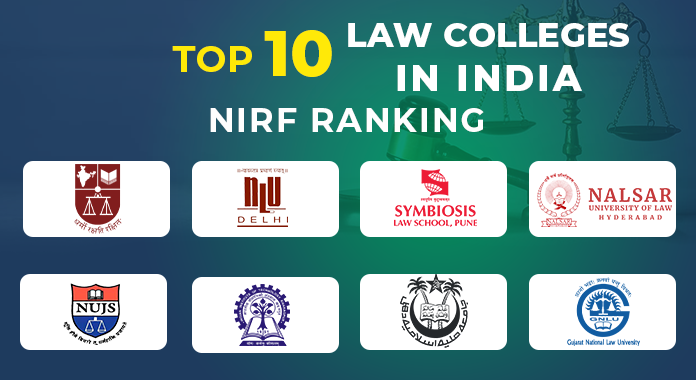Among the most critical decisions an Indian professional aspirant can make is between an executive MBA and a full-time MBA. The courses have their own kinds of exceptional benefits but tend to differ in the kind of objectives that one’s living standards and office experiences target. It all depends upon understanding the key differences so you do what best can serve your future.
Understanding the Basics
Basically, an executive MBA targets experienced professional development with a view to improving leadership skills and enhancing careers without interrupting work. Normally, EMBA programs are part-time, taking 18-24 months to complete. Classes normally take place during the weekends or in the evenings, hence easily allowing one to juggle their job with classes.
On the other hand, the Full-Time MBA experience is proportional; that is, they require full-time commitment from the students for a period of almost two years. This is best for those starting their careers or at a point where they want to make a very significant change in their career stream. Full-time MBA students are offered the best curriculum options, internships, and a range of extracurricular activities.
Who is the Executive MBA Meant For?
The Executive MBA is intended for already established professionals and requires a significant amount of work experience in addition to their educational background. An average student in EMBA has about 10-15 years of work experience and holds some kind of managerial or executive position. Students can apply the lessons they acquire in this program directly to their working position, making the education up-to-date.
Moreover, EMBA programs will facilitate one’s networking with other high-level professionals, which may result in significant career advancement. In fact, the Executive MBA Council suggests that an EMBA graduate will realize an average salary increase of about 14.1% globally.
Who Should Consider a Full-Time MBA?
A Full-Time MBA is best for those who are relatively early in their career or are looking for a major career shift because this program offers much study in business basics. It also provides internships and real projects.
At the very onset, students pursuing this type of MBA are generally those working full-time and have about 3 to 5 work experience. In this program, as the number of electives and specializations increases, it allows more customization of the education towards the desired career direction of the student. Further, the immersion that comes with doing an MBA full time would offer the possibility for students to become totally involved in education and school life, thus building good relationships with peers and faculty.
According to Graduate Management Admission Council, GMAC, the average initial salary of full-time MBAs in India is about INR 20-25 lakhs per annum.
Curriculum and Learning Style
An Executive MBA program is composed mostly of curriculum components that address strategic management, leadership, and advanced business concepts. All the courses are conducted keeping in mind the issues relevant to senior executives. A large number of EMBA programs are delivered within a cohort framework in which students go through the program in a group, enabling close networking relationships.
Full-time MBA programs, however, have a very expansive curriculum that covers all areas of business management. A student can opt for a plethora of electives and specializations, like finance, marketing, entrepreneurship, or technology management. This provides flexibility to students to explore different career paths and interests.
Career Impact and Networking
Basically, both EMBA and Full-Time MBA have high career benefits, though in significantly different ways. The programs under EMBA are targeted to satisfy the experienced professional looking to move up the corporate hierarchy. Many of the graduates from this type of program move to greater executive positions within their present companies or to new opportunities with their newly acquired skills and networks.
On the flip side, full-time MBA graduates often transition their career into new industries and/or roles. This is enabled by the broad-based training and internship experience that full-time programs offer. Moreover, the full-time experience will bring students through a series of networking events, career fairs, and recruiting activities to link them up with potential employers.
Costs and ROI
It is an expensive proposition, of course — cost-prohibitive in India, especially, where the fees for EMBAs are higher than those for full-time programs, with an average tuition fee exceeding INR 15-25 lakhs. However, many EMBA students receive financial support from employers, offsetting the cost.
The tuition fees for full-time MBA programs are also pretty high, typically INR 10 to 20 lakhs for the two-year program. However, full-time students forego their salaries while studying, adding to this cost. Nevertheless, the ROI can be very high for both programs. For instance, according to the Financial Times, the average increase in salary for an MBA is 33% globally.
dealloc end
Making the Right Choice
Honestly, the decision between an EMBA and a full-time MBA will be drawn from one’s career stage, goals, and personal circumstances. If you are a seasoned professional and would like to beef up your leadership skills while work goes on simultaneously, then an EMBA will be best suited for you. An EMBA is more suitable for advanced professionals in their careers, while a full-time MBA is more appropriate for people at the beginning of their careers or people looking to go through a step change in their career.
Both the options provide certain benefits of their own and offer substantial growth in the career way. Based on your career goals, work experience, and personal situation, you can take an informed decision for either of the options that complies with your professional aspirations.
Conclusion
In conclusion, both Executive MBA programs and Full-Time MBA programs offer valuable opportunities for career enhancement. The key is to understand which program aligns best with your career goals and lifestyle. Whether you choose the part-time, flexible approach of an Executive MBA or go for an immersive, in-depth experience of a full-time MBA, both ways, their methods do provide what is needed to succeed within the competitive business environment. One makes a well-educated choice and further proceeds on the ladder toward career aspirations.
Explore Best MBA colleges in India- Click Here



